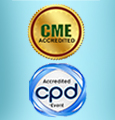
Tania M Kohal
Oakland University William Beaumont School of Medicine, USA
Title: Outreach modalities and their efficacy on encouraging individuals to seek HIV prevention and testing information
Biography
Biography: Tania M Kohal
Abstract
Introduction: Advances in pharmacological therapy have changed the narrative of individuals diagnosed with HIV, prolonging quality and length of life, however, prevention remains key in preventing transmission. Our project aims to assess how individuals obtain HIV information and testing services in the hope to better inform how resources for prevention can be effectively allocated.
Methods: Our study involved designing a flyer to be placed in two clinics, Affirmations and American Indian Health Family Services (AIFHS) in a general information area and a testing area. The flyers contained different web addresses directing individuals to the same web module. This web module contained information about HIV and a survey querying prior testing, risk assessment and demographic factors. A link was provided from the web module to a website where testing resources were available. We designed a method of tracking web traffic to ascertain the initiative individuals were taking in seeking further information. A focus group was done to evaluate how individuals obtain HIV information for which a qualitative analysis was done.
Results: Individuals do not readily engage in paper-media based information sources and are more likely to seek out web-based information on their own or respond to directed intervention by peers, physicians, etc.
Conclusion: Our study indicates that resources may be better directed towards web-based information sources and that a directed approach involving healthcare providers, peers, etc. is most effective in encouraging prevention-seeking behaviors.

